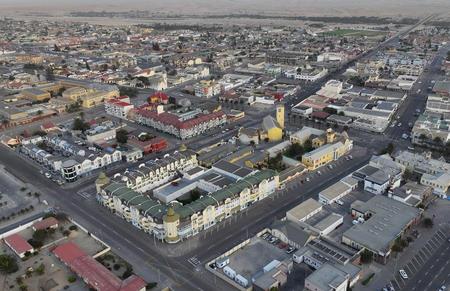
Namibia Vows To Bridge Rural Gaps In Water, Roads And Digital Access
Speaking in northern Namibia on Saturday, Ngurare said many rural households still lack basic services, decades after independence.
"The lack of reliable access to clean water is a fundamental challenge that affects not only your health but also your ability to thrive," he said, stressing the government's resolve to expand potable water supply, rural roads, and electricity to underserved areas.
He noted that infrastructure development remains central to Namibia's growth strategy, adding that good infrastructure is vital for economic development as it connects communities, enables farmers to bring their produce to market, and ensures children can get to school safely, reports Xinhua news agency.
Ngurare also highlighted plans to bridge the digital divide, pointing out that young people in rural constituencies need reliable internet to study and compete in the global economy. He said new information and communication technology towers were recently launched to extend coverage to previously underserved communities.
He urged communities to work with the government by turning present challenges into opportunities for future generations.
Earlier on August 29, the Namibian government also initiated a nationwide school rehabilitation campaign to fix dilapidated infrastructure in all 121 constituencies across the country.
The program was officially launched on Wednesday by the Prime Minister at Mukuvi Primary School in Kavango East Region, in northeastern Namibia.
The campaign aims to equip all Namibian schools with functional ablution facilities, laboratories, and other essential utilities.
This is part of a broader vision to create a conducive learning environment that supports national education goals, according to a statement issued by the Office of the Prime Minister.
The government is expected to utilise the skills of unemployed graduates from vocational training centres and other community members with relevant skills to carry out the work, the statement said.
In his address, Ngurare emphasised that the country has produced skilled graduates from technical and vocational institutions who are ready and able to contribute to national development.
He urged the government and stakeholders to utilise this untapped human resource, adding that this campaign should not be mistaken for a political move but rather viewed as a bold step toward creating a humane and inclusive learning environment for every child in Namibia.
For the 2025/26 financial year, Namibia allocated 24.8 billion Namibian dollars (about 1.4 billion US dollars) to the education, innovation, arts, and culture sectors, representing the largest portion of the national budget.

Legal Disclaimer:
MENAFN provides the
information “as is” without warranty of any kind. We do not accept
any responsibility or liability for the accuracy, content, images,
videos, licenses, completeness, legality, or reliability of the information
contained in this article. If you have any complaints or copyright
issues related to this article, kindly contact the provider above.


















Comments
No comment